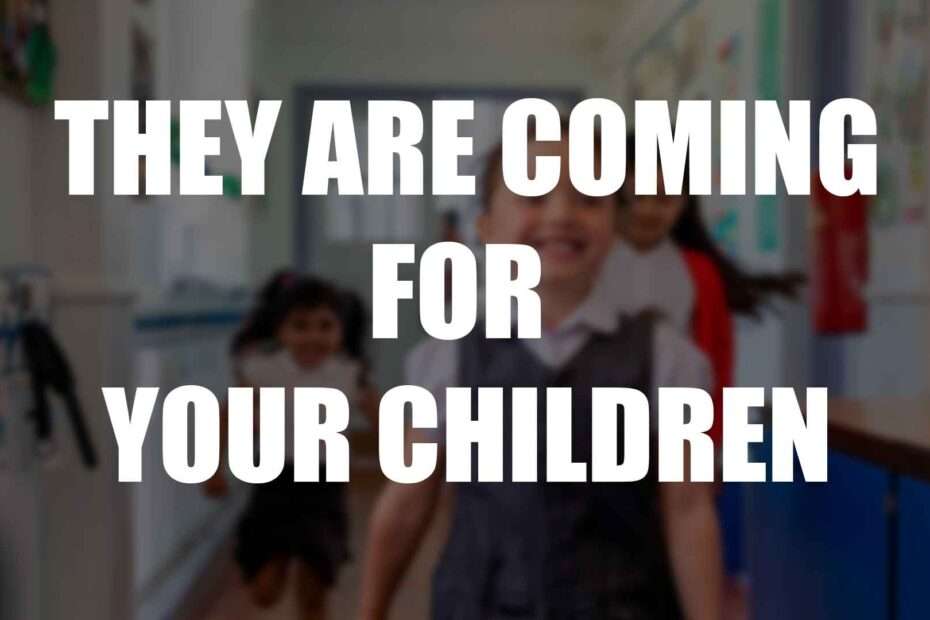They are coming for your children
Proposed Children’s Well-being and Home Schools Bill Raises Concerns Over Parental Rights
A controversial piece of legislation, the Children’s Well-being and Home Schools Bill, is scheduled for its second reading in Parliament. The bill, which represents its first major parliamentary vote, is expected to pass with a significant majority. Critics argue this legislation could fundamentally alter the relationship between parents and the state regarding children’s education and welfare.
The proposed legislation introduces several significant changes to the current educational framework, including the implementation of a national identity card system for all children, the creation of a comprehensive register tracking children’s locations, and regular local authority inspections of homeschooling environments. Perhaps most significantly, the bill would transform homeschooling from a parental right to a privilege requiring local authority permission.
This legislative shift follows a historical trajectory of changing parent-state relationships in British law. Under previous legal frameworks, parents were presumed to be the most appropriate caregivers and decision-makers for their children, with state intervention reserved for exceptional circumstances such as cases of incompetence or specific medical situations. However, this presumption was significantly altered during the Tony Blair era through the Children’s Act, which effectively repositioned the state as the primary arbiter of children’s best interests.
Under the current system, parents maintain certain rights, particularly regarding educational choices through homeschooling. The proposed legislation would remove this final autonomous decision-making power from parents. Local authorities would be empowered to assess and potentially decline homeschooling applications based on their evaluation of parental suitability.
Critics of the bill argue that the criteria for determining parental “suitability” for homeschooling could be problematic. There are concerns that personal beliefs, political affiliations, or religious views might influence these determinations. The legislation could potentially impact parents who disagree with certain aspects of the state education system, whether related to religious education, sex education, or other contentious curriculum matters.
The implications of this legislation extend beyond homeschooling rights. Under the proposed system, parents who disagree with school policies or teaching approaches would have limited recourse if their homeschooling application is denied. The national identity card system would track children’s whereabouts, and non-compliance with educational directives could result in legal consequences for parents.
This legislative proposal represents a significant shift in the balance of power between parents and the state regarding children’s education. While supporters might argue these measures ensure educational standards and child welfare, critics contend it removes fundamental parental rights and could lead to a more restrictive educational environment.
The bill’s introduction raises broader questions about the role of the state in education and the extent of parental authority over their children’s upbringing. It continues a trend of increasing state oversight in areas traditionally considered within the domain of parental discretion.
Parents concerned about these changes are being encouraged to contact their Members of Parliament before the second reading vote. The outcome of this vote could have lasting implications for the future of homeschooling and parental rights in the United Kingdom.
This legislation marks a significant milestone in the ongoing discussion about the balance between state oversight and parental autonomy in children’s education. Whatever the outcome of the vote, it is likely to have lasting implications for the relationship between families, educational institutions, and the state in Britain.
Key Implications of the Children’s Well-being and Home Schools Bill
Summary
The proposed legislation represents a fundamental shift in the relationship between parents, children, and the state in the United Kingdom. If passed, it would significantly alter the current educational landscape and parental rights framework.
Key Points:
* The bill would eliminate automatic parental rights to homeschool, replacing them with a permission-based system requiring local authority approval and ongoing oversight.
* A new national identity card system would be implemented for all children, along with a comprehensive register tracking their locations and educational status.
* Local authorities would gain expanded powers to conduct regular inspections of homeschooling environments and could deny or revoke homeschooling privileges based on their assessment of parental suitability.
* The legislation continues a trend that began with the Children’s Act under Tony Blair’s government, further shifting the presumption of “best interest” decision-making from parents to the state.
* Parents who disagree with state educational policies would have limited recourse if denied homeschooling permission, potentially forcing compliance with educational approaches they oppose.
* The implications extend beyond homeschooling, potentially affecting parents’ ability to influence or opt out of controversial aspects of their children’s education.
* Non-compliance with the new regulations could result in serious legal consequences for parents, including potential criminal charges.
This legislation marks a crucial moment in British educational policy, with lasting implications for parental rights, educational freedom, and the state’s role in child-rearing decisions.

